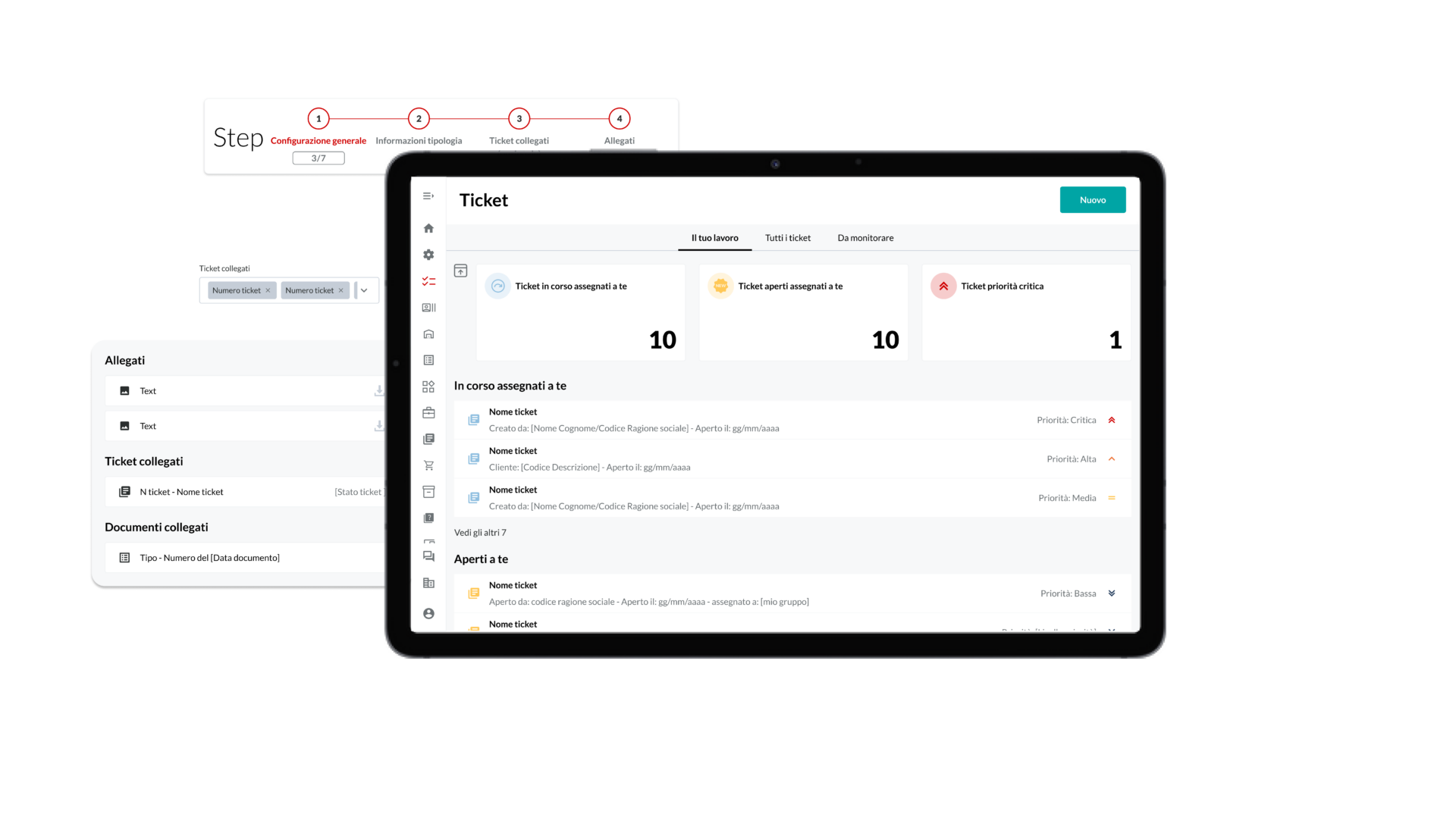After my last article, where I explored the topic of tasks — namely, managing planned activities scheduled in advance — I’d now like to delve into another key theme in the retail world: ticket management. Tickets typically arise from unexpected events that can have a significant impact on sales.
The concept of a ticket encompasses several variables — from its categorisation based on priority and severity, to the operation or technology affected, and the head office staff or external supplier that needs to be involved.
A ticketing system must therefore take all these aspects into account to ensure an efficient and streamlined process workflow. It’s also important to consider that store staff are often on the move — raising tickets while working on the shop floor — whereas those handling the tickets are typically based at fixed workstations.

These are the key elements we’ve introduced to make our ticketing system more effective:
So far, we’ve focused on tickets related to technology issues — but that’s not the only use case. In fact, by leveraging all their components, tickets can also be applied to other areas such as:
At Aton, we recognise that ticket management is a process as complex as it is essential to the business. That’s why we continuously evolve our ticketing solution, with the aim of making our customers’ operations even more seamless. Among the latest developments, we’ve decided to introduce Artificial Intelligence to:
Tasks and tickets are processes which, if managed effectively through technology, can be streamlined and accelerated—leading to an improvement in the quality of work for People and a tangible impact on customer Prosperity, achieved by optimising productive time and preventing sales disruptions.
In our upcoming articles, we will continue to discuss process innovation—so stay tuned!